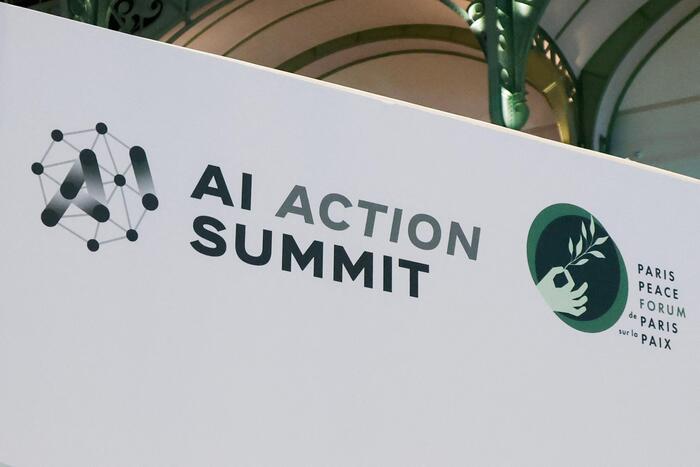The governments of the United States and the United Kingdom stood apart from a global agreement on the “ethical” use of artificial intelligence (AI) at a summit in Paris on Tuesday.
The declaration, signed by 58 countries including France, Italy, China, and India, aims to ensure AI development remains “open,” “inclusive,” and “ethical.” However, the UK’s Labour government deemed the agreement insufficient. A statement from the British government said that it “hadn’t been able to agree all parts of the leaders’ declaration” and would “only ever sign up to initiatives that are in UK national interests”.
In Paris, US Vice President JD Vance defended his country’s decision, cautioning against excessive regulation in the sector that could “kill a transformative industry just as it’s taking off”.
Vance stressed that AI presents a crucial opportunity for the US, one that the administration intends to leverage through a “pro-growth” approach that prioritizes development over restrictions. “We feel very strongly that AI must remain free from ideological bias and that American AI will not be co-opted into a tool for authoritarian censorship”, he said as he criticized “massive regulations” created by the EU’s Digital Services Act, as well as Europe’s online privacy rules (GDPR).
Vance also took aim at China’s growing influence in the sector, suggesting that accepting Chinese-made products could bind nations to authoritarian regimes. “From CCTV to 5G equipment, we’re all familiar with cheap tech in the marketplace that’s been heavily subsidised and exported by authoritarian regimes,” Vance said. The comment likely alluded to DeepSeek, a Chinese startup that released a powerful free AI model last month, developed at a fraction of the cost of models like ChatGPT. The move sparked panic among US businesses, and the app has faced increasing scrutiny from Western countries concerned about privacy and security risks.
Vance’s stance is in stark contrast to that of French President Emmanuel Macron, who called for stronger regulation: “We need rules to ensure that AI can evolve safely and transparently,” he said. European Commission President Ursula von der Leyen echoed this sentiment, reaffirming the EU’s commitment to balancing innovation with security and promoting open-source collaboration.
The summit saw leaders, diplomats, and tech executives discussing how to balance AI’s economic potential with the risks it poses. Environmental concerns were also raised, particularly regarding the energy consumption of AI systems, which experts warn could soon rival that of entire countries.
The UK’s position, however, remains contentious. Just months ago, in November 2023, the UK hosted the first global summit on AI security under Prime Minister Rishi Sunak. Now, the UK’s refusal to sign the Paris agreement risks damaging its credibility on the issue. Starmer’s spokesperson has since clarified that talks are ongoing, and the UK will “continue to work closely with France and other partners.”
Meanwhile, the European Union is pushing forward with its AI agenda. The European Parliament has already approved the AI Act, a landmark regulation set to fully take effect in August 2026. Nonetheless, there is a growing recognition within the EU of the need to support businesses in the sector, ensuring they are not burdened by excessive bureaucracy. Macron has promised to reduce administrative burdens, while von der Leyen unveiled “investAI,” a new initiative designed to attract €200 billion (circa $206 billion) for AI research, along with a €20 billion European fund for AI gigafactories.
“Too often, I hear that Europe is falling behind in the AI race, while the US and China are ahead,” von der Leyen said. “I disagree. The AI race is far from over. We’re just getting started.”












